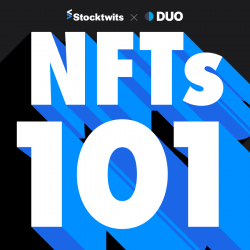You may have heard of an acronym going around in the crypto space called a DAO. It stands for Decentralized Autonomous Organization, and while that may sound scary, it really is quite easy to understand. DAOs have been growing in popularity recently as a way for groups and communities around the world to collectively put their crypto assets to work in new ways. Think of these DAOs as companies or organizations that are completely run by smart contracts and member voting.
Before we dive too deep into these two primary elements, let’s review how traditional companies or organizations work. It might be most beneficial to compare a large public company like Apple because the larger a company gets, the more complex the company becomes and more trust is needed to operate effectively.
As a public company, Apple is owned by the shareholders; however, much of the authority and direction of the company is consolidated to a Board of Directors and the Executives of the company. There are company by-laws and mountains of legal documents that describe who has what authority, when they can make decisions, and who they have to include in that process. Imagine all the documentation expenses at Apple; every decision that has to happen, from company raises, to hiring employees, to creating new products, and choosing new vendors, it all has to be written down. Smaller decisions happen further down the food chain, but still create an expense. The bottom line is any decision at Apple creates a massive amount of administrative cost because management is trying to make clear, consistent decisions every single day.
Okay, so what changes with a DAO? Well, instead of legal armies, mounds of documentation and lengthy company by-laws, DAOs use smart contracts on a blockchain to automatically make things happen. The smart contracts are a critical cornerstone of any DAO. These smart contracts are open source contracts and public for anyone to view. When a scenario occurs, these smart contracts autonomously resolve the scenario based on the rules of the contract. This creates a very transparent and consistent way of how actions and decisions happen within the DAO. Imagine instead of management deciding when someone receives a raise based on their own bias and interpretation of company policy, raises were automatically distributed when certain predetermined and publicly accessible metrics were hit.
While this may sound really good, it is important to note that there are some drawbacks to a DAO that you should be aware of. No matter how good your engineering team is, no one gets it perfect on the first try. In a company, this is also true, and it is why executives and lawyers will often change a company’s operating agreement, by-laws, or contracts from time to time. Similarly, DAOs can update and change their smart contracts with a vote based on the tokens (similar to shares) a member owns. This “improvement plan” voting is the core way a DAO is upgraded over time. This vote would give key developers the authority to update the DAOs smart contracts to reflect what the community of the DAO wants changed. The problem that can arise from this is that if one bad actor becomes powerful enough to dictate the vote, they can potentially hijack the entire organization.
It’s important to note that a DAO is designed to run autonomously and these votes aren’t for daily activity. Rather, people are voting for changes and improvements over time to how the automation is run.
The power of DAOs over traditional companies is the anonymity, speed, and global reach they have. Anyone can contribute or buy into a DAO, in accordance with its public smart contract rules. A DAO can get up and running very fast since most of the operational decisions are run by the smart contracts and the code. This means you don’t have that terrible boss, making terrible decisions, who never leaves the company because they are friends with the owner.
Finally, unlike most companies, DAOs have a low cost global reach. All the authority is wrapped up in the smart contracts which live strictly in the digital world on the blockchain. As long as you have an internet connection, you can engage with and create a DAO.
While there have been many different uses of DAOs, the one you may have heard about is the infamous The DAO, which started as a 150 million dollar investment DAO. Unfortunately, it was hacked and the monumental event actually caused the Ethereum and Ethereum Classic hard fork. For the sake of this article, we aren’t going to get into what that means, but the bottom line is that it was bad for the entire network. A more recent example is the ConstitutionDAO, where a group of strangers pooled 47 million dollars to buy a copy of the US Constitution. While they ultimately got outbid at auction, being able to raise that amount of money in 5 days was an incredible feat, and because of the structure of the smart contracts, upon losing the auction, refunds were immediately available to everyone involved without any humans playing gatekeeper.
As we continue to expand as a global community, incorporate NFTs into our organizations, and rely on trustless structures like a DAO, the opportunities for quick advancement are endless. We are rewriting the expectations for how we collaborate, own, and transact in this global marketplace, and DAOs are giving us a new way to cut out the middleman and all of the costs associated with them.
Disclaimer: This transcript was auto-generated using AI-powered software.
About NFTs 101
Stocktwits has teamed up with Duo, the first play-to-earn humor-based social NFT game built on Cardano, to explain the emerging market of NTFs.
Hosted By:
Duo Duo Website
Duo is the an NFT game built on Cardano where you match funny prompts & punchlines to earn crypto & NFTs!

